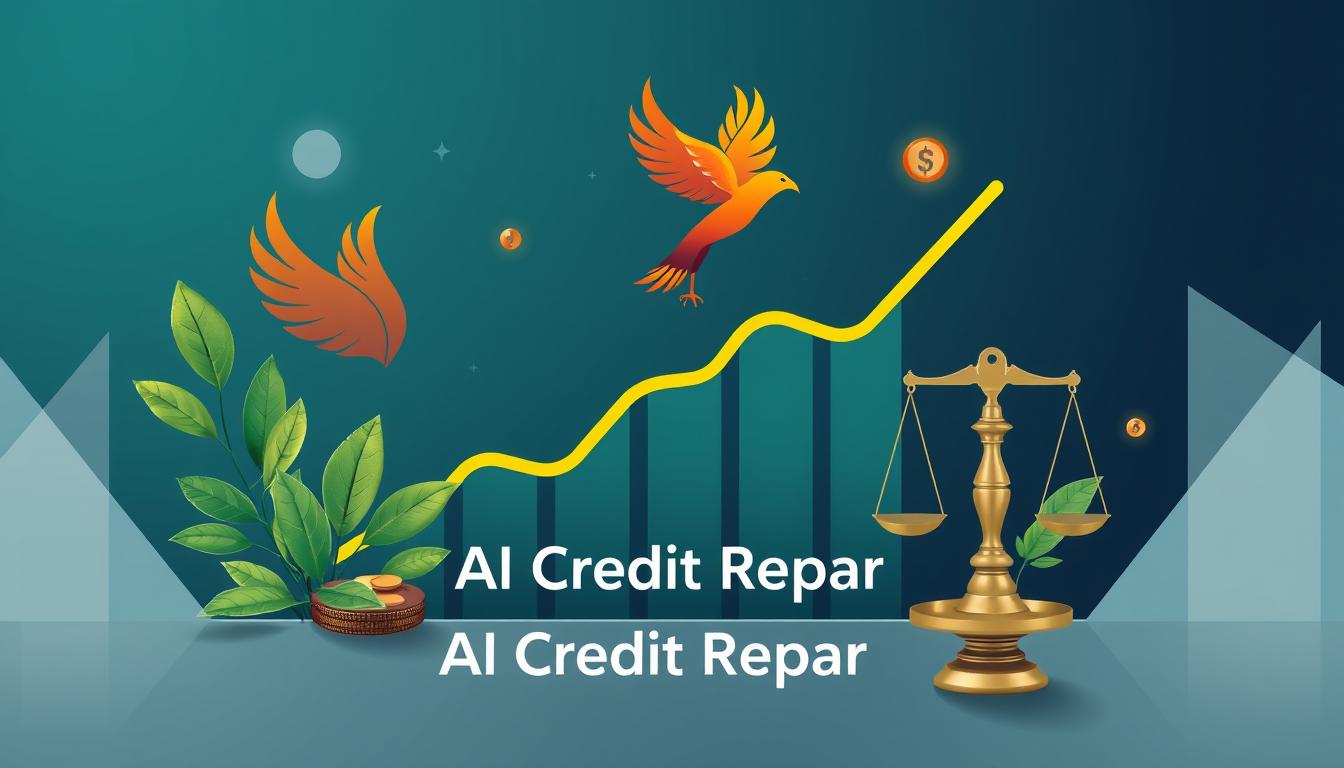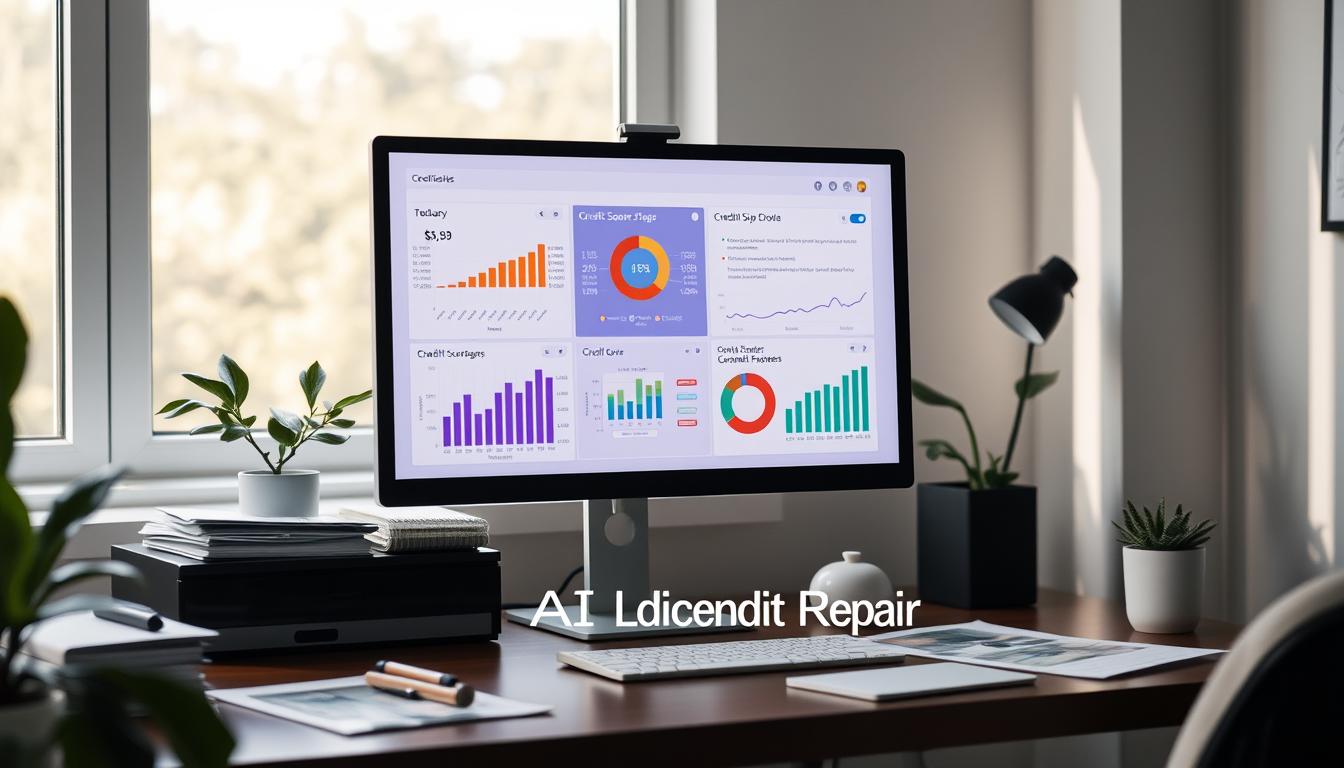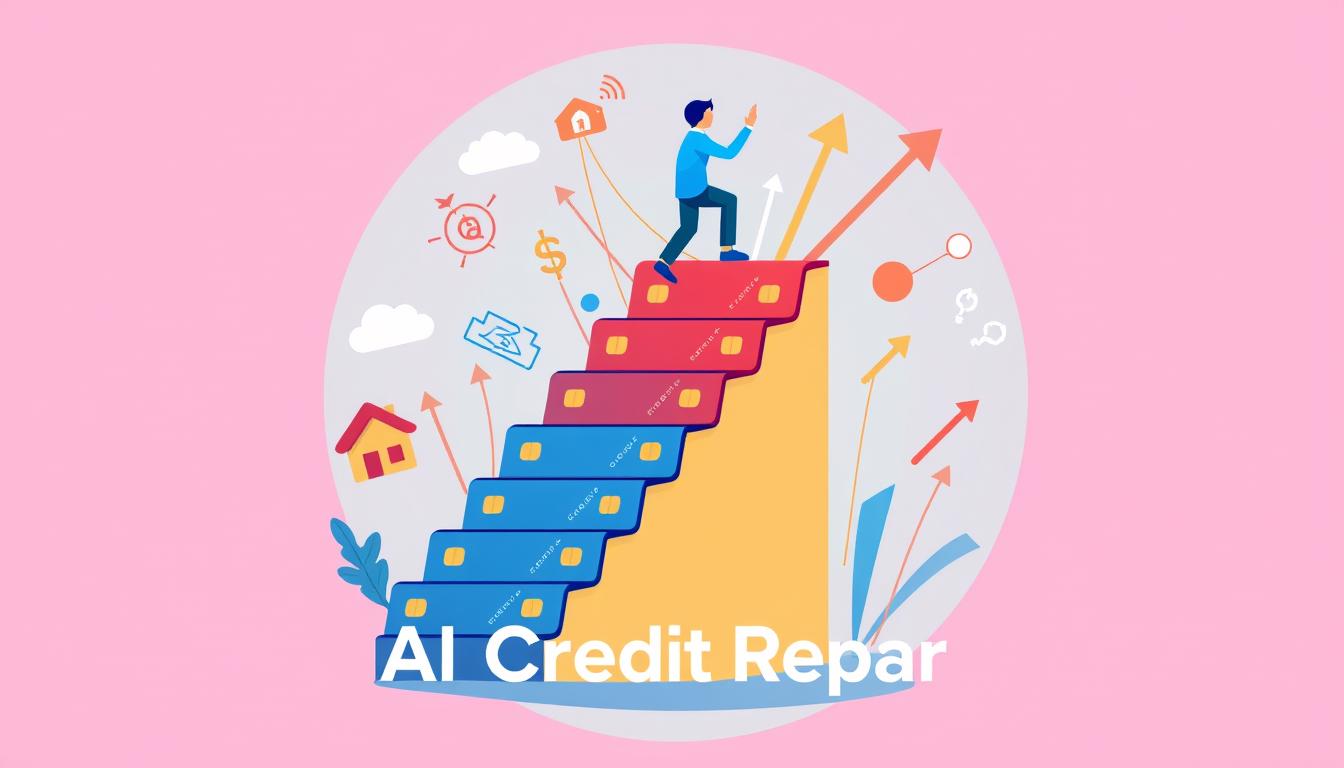Chapter 13 bankruptcy can be tough. But you can still improve your credit score during this time. Here are some useful tips to help you boost your credit score while in Chapter 13.
These strategies will empower you to take control of your finances. You’ll learn how to make smart choices for your financial future.
Key Takeaways
- Understand the impact of Chapter 13 bankruptcy on your credit score
- Identify key factors that affect your credit score during the bankruptcy process
- Learn strategies to establish new credit accounts and maintain existing ones
- Discover effective debt management techniques to improve your financial standing
- Explore ways to dispute credit report errors and rebuild your credit after Chapter 13
Understanding Chapter 13 Bankruptcy
Chapter 13 bankruptcy is a powerful financial tool for individuals with regular income. It allows them to create a repayment plan for their debts. This chapter 13 bankruptcy process involves making monthly payments to a trustee.
The trustee then distributes the funds to the individual’s creditors. Understanding the chapter 13 repayment plan is crucial for managing your credit score. Knowing how chapter 13 bankruptcy works can help you navigate this process effectively.
In Chapter 13 bankruptcy, the individual must propose a repayment plan. This plan must cover the debtor’s disposable income and be approved by the court. Once confirmed, the individual makes regular payments to the trustee.
| Key Aspects of Chapter 13 Bankruptcy | Description |
|---|---|
| Duration | 3 to 5 years |
| Repayment Plan | Proposed by the debtor and approved by the court |
| Monthly Payments | Made to a trustee, who then distributes the funds to creditors |
| Debt Included | All or a portion of the debtor’s unsecured and secured debts |
Grasping the chapter 13 bankruptcy process is vital for managing your credit score. By understanding key aspects, debtors can make informed decisions. This knowledge helps them take proactive steps to maintain and improve their credit profile.
Factors Affecting Credit Score During Chapter 13
Chapter 13 bankruptcy can impact your credit score. Two key factors are payment history and credit utilization. Understanding these can help you manage your credit during this time.
Payment History
Timely payments on your Chapter 13 plan are vital. They show financial responsibility and can soften the bankruptcy’s impact. Your payment history is a big part of your credit score.
Credit Utilization
Credit utilization also affects your score during Chapter 13. Avoid new credit applications. Manage existing accounts carefully. This helps keep your credit utilization low, which is important for your score.
| Factor | Impact on Credit Score During Chapter 13 |
|---|---|
| Payment History | Positive payment history on your Chapter 13 repayment plan can help maintain a good credit score. |
| Credit Utilization | Keeping credit utilization low by avoiding new credit and managing existing accounts can minimize the negative impact on your score. |
Managing these factors can help rebuild your credit. Take proactive steps during your Chapter 13 bankruptcy. Over time, you can improve your credit score.

“Maintaining a positive payment history and low credit utilization are crucial for protecting your credit score during Chapter 13 bankruptcy.”
Establishing New Credit Accounts
Rebuilding credit during Chapter 13 bankruptcy is possible. Opening new credit accounts can help establish a positive payment history. This strategy demonstrates creditworthiness to lenders.
Explore options like secured credit cards, credit-builder loans, or becoming an authorized user. These accounts are beneficial for building credit during chapter 13.
- Secured credit cards require a refundable security deposit, which becomes your credit limit. They’re designed to help individuals with poor or limited credit history establish or rebuild their credit.
- Credit-builder loans are a unique type of loan where the money is held in an account while you make monthly payments. Once the loan is paid off, you receive the funds, along with the positive payment history.
- Becoming an authorized user on someone else’s account allows you to benefit from their positive credit history, provided the account is in good standing.
Opening new credit accounts during chapter 13 helps establish a positive payment history. This action shows lenders your creditworthiness. Over time, it can boost your credit score.
“Rebuilding your credit during a Chapter 13 bankruptcy is not only possible but can be a crucial step in regaining financial stability.”
Maintaining Existing Accounts
During Chapter 13 bankruptcy, it’s vital to manage both new and existing credit accounts. Timely payments on current accounts show your commitment to responsible credit management. This helps preserve your payment history and credit score.
Consistent Payments
Making consistent payments is key to maintaining a strong credit score during Chapter 13. Even minimum payments help maintain existing credit accounts during chapter 13. Staying current prevents further damage to your credit score.
Credit Monitoring
Regularly monitor your credit reports throughout the Chapter 13 process. This helps you spot and fix any errors or discrepancies. Accurate credit reports reflect your credit monitoring during chapter 13.
They also show the importance of consistent payments during chapter 13. Regular monitoring ensures your financial efforts are properly recorded.
| Factors | Impact on Credit Score |
|---|---|
| Consistent Payments | Positive |
| Credit Monitoring | Positive |
“Maintaining your existing credit accounts and making consistent payments during Chapter 13 can be a crucial step in preserving your credit score and setting the stage for a successful financial recovery.”

Debt Management Strategies
A solid debt management strategy is vital in Chapter 13 bankruptcy. Effective debt management strategies during chapter 13 help maintain repayment plans and protect credit scores. This is key for those aiming to manage debt during chapter 13 bankruptcy.
Negotiating with creditors is crucial for effective debt repayment plans during chapter 13. Talk openly with lenders about your finances. Explore options like reduced interest rates or partial debt forgiveness. This proactive approach can lead to beneficial agreements.
Creating a realistic budget is also essential. Examine your income, expenses, and priorities carefully. Develop a plan that efficiently allocates funds towards your Chapter 13 repayment. Look for areas to cut costs and reduce spending.
- Negotiate with creditors for reduced interest rates or alternative payment plans.
- Develop a realistic budget that aligns with your Chapter 13 repayment obligations.
- Prioritize the repayment of certain debts over others based on their impact on your credit score and overall financial well-being.
These debt management strategies during chapter 13 can help you navigate the process confidently. They set the foundation for a stronger financial future. A well-planned approach to managing debt during chapter 13 bankruptcy often leads to success.
“Effective debt management is the foundation for a successful Chapter 13 bankruptcy journey.”
How to Boost Credit Score While in Chapter 13
Chapter 13 bankruptcy can be tough, but you can improve your credit score. By using smart strategies, you’ll set yourself up for a stronger financial future.
Make timely payments on your Chapter 13 repayment plan. This shows creditors you’re committed to financial responsibility. Keep existing credit accounts in good standing too.
Consider opening new credit accounts like secured credit cards or credit-builder loans. These help build credit history and show you can manage credit well.
Monitor your credit report closely. Address any inaccuracies or disputes promptly. This ensures your report reflects your financial progress accurately.
“With determination and strategic planning, you can take concrete steps to tips to improve credit score during chapter 13 and emerge from Chapter 13 with a stronger financial foundation.”
The Chapter 13 journey is challenging, but don’t lose hope. By using these strategies, you can improve your credit score. You’ll be on track for long-term financial stability.

Disputing Errors on Credit Reports
Review your credit reports carefully during Chapter 13 bankruptcy. Look for errors and inaccuracies. Disputing errors on credit report during chapter 13 helps maintain accurate credit history and improves credit score rebuilding chances.
Understanding Credit Report Entries
Start by interpreting your credit report information. This is key to correcting inaccuracies on credit report in chapter 13.
Look for these important details:
- Incorrect personal information, such as your name, address, or date of birth
- Credit report entries during chapter 13 that do not accurately reflect your bankruptcy filing or payment history
- Negative items, such as late payments or collection accounts, that should have been removed or updated
Identifying errors in your credit report is crucial. It helps you spot discrepancies that need fixing.
Disputing Credit Report Errors
Found any disputing errors on credit report during chapter 13? You can challenge them with credit bureaus. Here’s how:
- Contact the credit bureau(s) in writing and provide supporting documentation
- Wait for the credit bureau to investigate and respond (up to 30 days)
- If the error is verified, ask the credit bureau to correct or remove it
Stay persistent in the dispute process. Provide necessary evidence to support your claims.
This helps ensure your credit report accurately shows your financial situation during bankruptcy.
“Maintaining an accurate credit report is crucial during Chapter 13 bankruptcy, as it can significantly impact your ability to rebuild your credit and achieve your financial goals.”
Rebuilding Credit After Chapter 13
Completing your Chapter 13 bankruptcy repayment plan marks the start of credit rebuilding. Practical strategies can help you rebuild credit after chapter 13 and improve your credit score post-chapter 13 bankruptcy.
Establishing new credit accounts is a key step. Consider applying for a secured credit card or becoming an authorized user. These actions can show responsible credit management and help rebuild your credit history.
Keeping existing accounts is vital. Consistent on-time payments on remaining debts show financial responsibility. This practice helps boost your credit score after chapter 13 bankruptcy.
Regularly check your credit report for accuracy. Dispute any errors that may be negatively impacting your credit. This step ensures your credit report reflects your true financial situation.
Effective debt management strategies can aid in rebuilding credit. Create and stick to a budget. Prioritize debt repayment and limit new credit use. These actions demonstrate your ability to manage finances wisely.
Rebuilding credit after Chapter 13 takes time and effort. Stay committed to your financial goals. With persistence, you can rebuild your credit and move towards a stronger financial future.
| Strategies for Rebuilding Credit After Chapter 13 | Benefits |
|---|---|
| Establish new credit accounts (e.g., secured credit card) | Demonstrates responsible credit management, helps rebuild credit history |
| Maintain existing accounts with consistent on-time payments | Improves payment history and credit utilization, boosts credit score |
| Monitor credit report and dispute any errors | Ensures accurate credit information and removes negative items |
| Implement debt management strategies (e.g., budgeting, minimizing new credit use) | Demonstrates financial responsibility and helps manage debt effectively |

“With dedication and the right strategies, you can rebuild your credit after chapter 13 bankruptcy and regain financial stability.”
The Importance of Credit Counseling
Credit counseling is crucial during Chapter 13 bankruptcy. Professionals can guide you through this complex financial journey. Their expertise and resources are invaluable.
Educational Resources
Credit counseling services offer various educational resources for Chapter 13 bankruptcy. These include budgeting workshops and personalized debt management strategies. Such tools help individuals regain financial stability.
- Budgeting and money management assistance
- Debt consolidation and repayment planning
- Credit report review and dispute resolution
- Financial literacy education
A credit counselor can help you understand the credit counseling during chapter 13 process. They teach strategies to rebuild your credit after chapter 13. This guidance is key to achieving your financial goals.
| Service | Description | Benefits |
|---|---|---|
| Budgeting Assistance | Comprehensive analysis of your income, expenses, and spending habits to create a personalized budget plan. | Helps you manage your finances effectively during Chapter 13, ensuring timely payments and debt reduction. |
| Debt Management Strategies | Developing a debt repayment plan that aligns with your Chapter 13 requirements and long-term financial goals. | Facilitates the successful completion of your Chapter 13 plan and sets the stage for rebuilding your credit after chapter 13. |
| Credit Report Review | Thorough examination of your credit report to identify and address any inaccuracies or errors. | Ensures the accuracy of your credit information, which is crucial for boosting your credit score during chapter 13. |
Credit counseling services offer educational resources for chapter 13 bankruptcy. These resources provide knowledge and support. They help you navigate the importance of credit counseling in chapter 13.
Conclusion
Boosting your credit score during Chapter 13 bankruptcy is possible. With a strategic approach, you can improve your financial standing. You can set yourself up for success by taking the right steps.
Key steps include maintaining consistent payments on your repayment plan. Establishing new credit accounts and disputing credit report errors are also crucial. Seeking guidance from reputable credit counseling services can provide additional support.
Patience and perseverance are essential in this process. Rebuilding credit after bankruptcy takes time, but don’t get discouraged. Stay focused and committed to your financial goals.
With the right strategies and support, you can make significant progress. Your journey to financial recovery may be challenging, but it’s achievable. Keep moving forward with confidence and determination.

